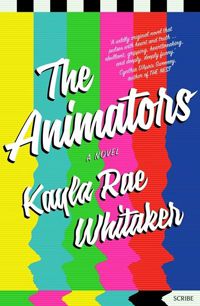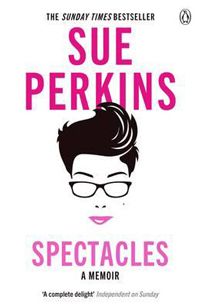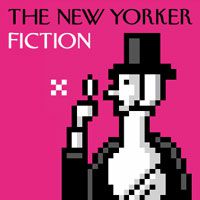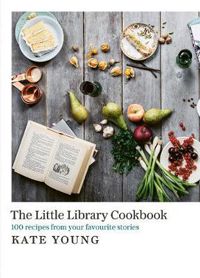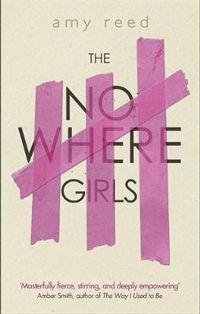Each week we bring you a sample of the books we’re reading, the films and TV shows we’re watching, and the music we’re listening to.
Stella Charls is recommending The Animators by Kayla Rae Whitaker
The Animators by Kayla Rae Whitaker has stayed with me since I first read it nine months ago. At this point I can safely say it’s my international fiction pick of the year. It’s funny, deeply moving and fiercely empathetic. It made me realise how rare it is to read a novel where the primary focus is a creative partnership between two women. The fact that these women, Sharon Kisses and Mel Vaught, both come from the rural south of the U.S. – East Kentucky and Central Florida respectively – also felt incredibly fresh for me, as so much of the American fiction I read takes place the northern states (now I pretty much want to move to Louisville).
There is so much to unpack in The Animators – you can read my review of this incredible novel here (https://www.readings.com.au/review/the-animators-by-kayla-rae-whitaker). I was also lucky to meet Whitaker when she visited Australia for the Byron Bay Writers Festival and Bendigo Writers Festival either this year, and can safely now assure you that she’s as lovely and charismatic a person as she is a talented novelist. We talked about Sharon and Mel, favourite animation, grappling with addiction and writing dialogue that leaps off the page for the Readings Podcast. You can listen to our conversation here, and read Whitaker’s fascinating essay about giving up drinking (which we discuss on the podcast) here.
Lian Hingee is reading Spectacles by Sue Perkins
This past week I’ve been enjoying Sue Perkins’s Spectacles. The author describes this memoir as ‘the biography of a shy person with limited social skills who collected pebbles and wrote bad poems, and bewilderingly, was obsessed with wearing kilts’. These days Perkins is best known as the former co-host of the Great British Bakeoff, but I fell in love with her after seeing a show called Supersizers Go in which she and food critic Giles Coren frock up in period costumes and spend a week living the life and eating the food of different decades in history. She’s a funny lady, witty and charming and warm-hearted, and it all comes across brilliantly in her writing. She writes affectionately of her eccentric family, her childhood and thespian aspirations and her professional and personal life – and all in a voice this is remarkably recognisable as her own.
Ellen Cregan has been listening to the New Yorker fiction podcast
I’ve been revisiting some old episodes of the New Yorker fiction podcast on my commute to work. This is an especially excellent podcast – authors come in and choose a story from the New Yorker’s back catalogue and read it aloud, then discuss it. This format, as well as the sheer breadth of the New Yorker’s bank of work from authors, means that the chances of one of your favourite writers reading out the work of another favourite writer is high.
Most recently, I’ve listened to Curtis Sittenfeld reading a Tessa Hadley’s story ‘The Surrogate’. I’ve never really encountered that much of Hadley’s work before, so it was great to hear her story read aloud by Sittenfeld, an author I love. I also recently listened to Dave Sedaris reading a Miranda July’s story ‘Roy Spivey’ which is one of my all time favourites of hers. Sedaris and July both have such offbeat (but fantastic) senses of humour, and this pairing was absolutely perfect. I always enjoy hearing writers talk about the work of other writers they admire, too. This podcast is a great way to revisit old favourites and discover new ones.
Chris Gordon is reading The Little Library Cookbook by Kate Young
I’ve been dabbling in and out of the most gorgeous cookbook. I’d even go so far as to say that The Little Library Cookbook is the sweetest and most delightful cookbook of the year. I’m not the only one that thinks so – author Kate Young has just won an award from the Guild of Food Writers for her wonderful blog.
Young works through all the books she loves, and matched a recipe with each of them. The collection is divided into appropriate sections like ‘Before noon’, ‘Around noon’ and (my personal favourite) ‘Midnight feasts’. Recipes include pizza as eaten in Elena Ferrante’s My Brilliant Friend, Paddington Bear’s marmalade which is perfect for a high tea, and ‘Linguine alla cecca’ to go with Nora Ephron’s Heartburn.
This wonderful idea is beautiful presented and this is the kind of cookbook to leave lying around so that you can pick it up in spare moments – either to write an impromptu shopping list, or to blissfully dream about a book you’d like to revisit (or read for the first time). The Little Library Cookbook is a complete and utter joy.
Kushla Egan is reading The Nowhere Girls by Amy Reed
This week I want to recommend Amy Reed’s YA novel, The Nowhere Girls.
I’ve actually been wanting to write about this particular book for some time but have felt unsure how to do so. While young adult literature often explores sexual violence, it can be difficult to ‘sell’ these kind of stories to potential readers and their parents. I never want to invite the voice of trauma into someone’s world if they are not ready, and I am very aware that some readers may never be ready to engage with these particular books. However, in the light of the enormity and severity of the #metoo disclosures shared by people in the last weeks, my hesitations over how to promote this book feel irrelevant. These kind of stories are incredibly important.
Storytelling has a crucial place in the work we do to improve our society and is a genuine tool with which to begin dismantling the culture of silence that surrounds sexual violence. It’s role feels particularly important for teenagers as literature is a safe place for them to explore difficult issues, and I truly believe that young people need access to books like The Nowhere Girls. If a teenager in your life has been asking you questions about Harvey Weinstein’s high profile case of alleged serial abuse, this is a brilliant piece of literature to equip them with. The novel explores politics of consent and power in a way that’s accessible and thoughtful, making it possible for them to start to contextualise the public discourse that they’re being exposed to.
The book follows three young women: Grace, the new girl in town and the preacher’s daughter; Rosina, a queer Mexican-American from a deeply conservative family; and Erin, an intelligent, wickedly funny person who is much more than her Asperger’s diagnosis. All three characters are disturbed by the rape culture in their high school community, and decide to reach out to other women on campus to form a secret collective to take action. They call themselves the Nowhere Girls and their immediate goal is to demand that the men at their high school take responsibility for the rape culture they are contributing to. Later, they specifically attempt to seek justice against one repeated rapist who has been long-protected by the power structures in their community.
In this work, Reed also gives a voice to ‘Everywhere Girls’ by including chapters that showcase the voices of other women in the community. There is such a mix of perspectives here including girls who don’t believe rape culture exists, Black girls who feel excluded from the ideas being promoted by the movement and girls who come from such stark poverty that they don’t believe others outside their experience can understand their position. Reed represents an immense diversity of characters with purpose and authenticity, and each ‘Everywhere Girl’ vignette feels important to the overall narrative. The different perspectives are presented side-by-side, and no one girl’s lived experience emerges as supreme – rather, they are all equally valid voices and stories, albeit with distinctively different privileges.


